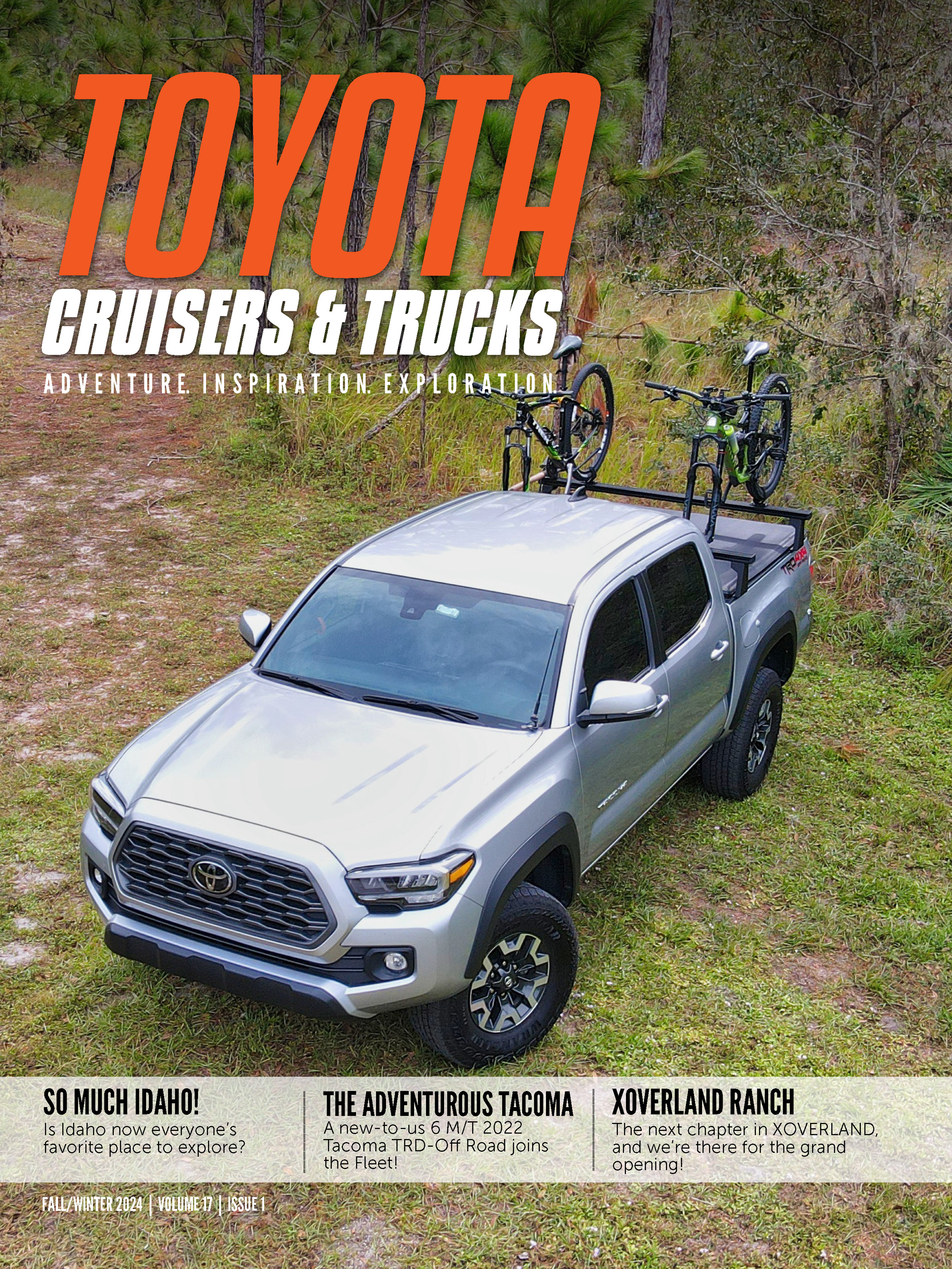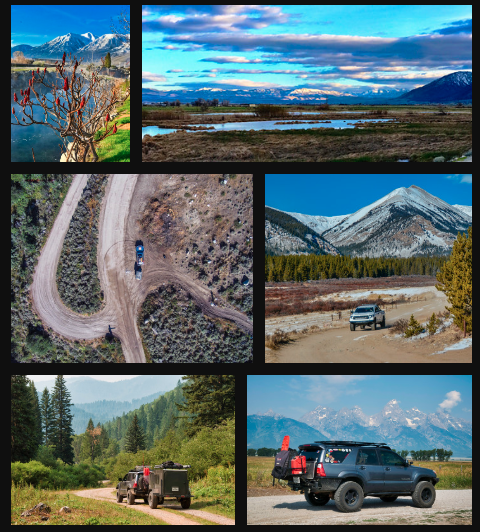If you’re overlanding with a group, it might be best to pick companions who check over all the rigs each day. If they are really into mechanical workings, I suggest looking over each others rigs so things don't get missed in the wake of routine. The key is to catch the lost bolt, loose belt, clogged air filter or other item that could lead to a trip ending failure. Besides, what a great excuse to wear a sporty set of coveralls! Those actually aren’t a bad idea, to aid in clean up time after checks are done. This is another area where having on-board air can make checking bolts fun. I know my Extreme Outback setup will tighten loose bolts in a jiffy with that nifty air tool whine!
Another feature of an overland outing is that it usually covers a long distance and requires quite a bit of navigation. The last thing you want to happen is a loss of your previous track or problems with the route ahead. So as soon as you stop for camp, save your data and then take a look at the next days plan to make sure you have the fuel, supplies, stops needed, waypoints marked, and historic sites noted. These are the things you’re out there to see after all. This applies just as much to paper map people. There is still a need to look ahead and make sure you have the map needed next or to confirm the distance covered. Of course all the travel usually translates into pictures and we all know how fickle the gods of data are. Have the forethought to download your memory cards daily and you will be ready with plenty of megabytes when that perfect shot comes along. If you are a film person, take the time to make a few notes on the rolls and secure them against heat, dust or damage.
Of course that perfect shot and a blank memory card doesn't do any good if the flashing battery symbol on your camera sends your blood pressure sky high. So take the time to setup batteries to charge for cameras, handheld radios, gps units or whatever electron sucking instruments you have acquired.
All these tasks do sound like a lot of work at the end of a hard day of backcountry exploration. However, if you divide the tasks among your group or just get a routine down you will find that there is still plenty of time for dinner, a seat around the fire and discussion about the quality of life on the backside of beyond.
One warning before we part ways, please be careful of something called “comfy chair syndrome”, once you stop and sit it is hard to get moving again, so get the important stuff done immediately so you will sleep well knowing tomorrow brings another exciting overlanding day.
Lance Blair is an overlanding enthusiast, expedition leader, and Tread Lightly trainer. He’s also the founder of Disabled Explorers, a non-profit group dedicated to helping mobility impaired outdoor enthusiasts gain access to the backcountry. He’s a regular contributor to FJCruiserForums.com, the Expedition Portal, and of course FJC Magazine. Lance can be contacted through the Disabled Explorers website.




